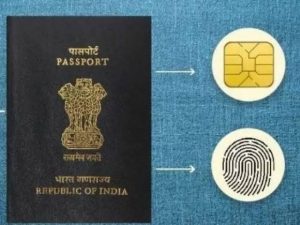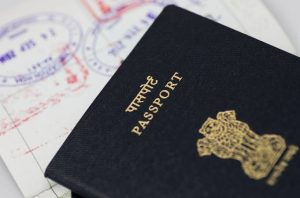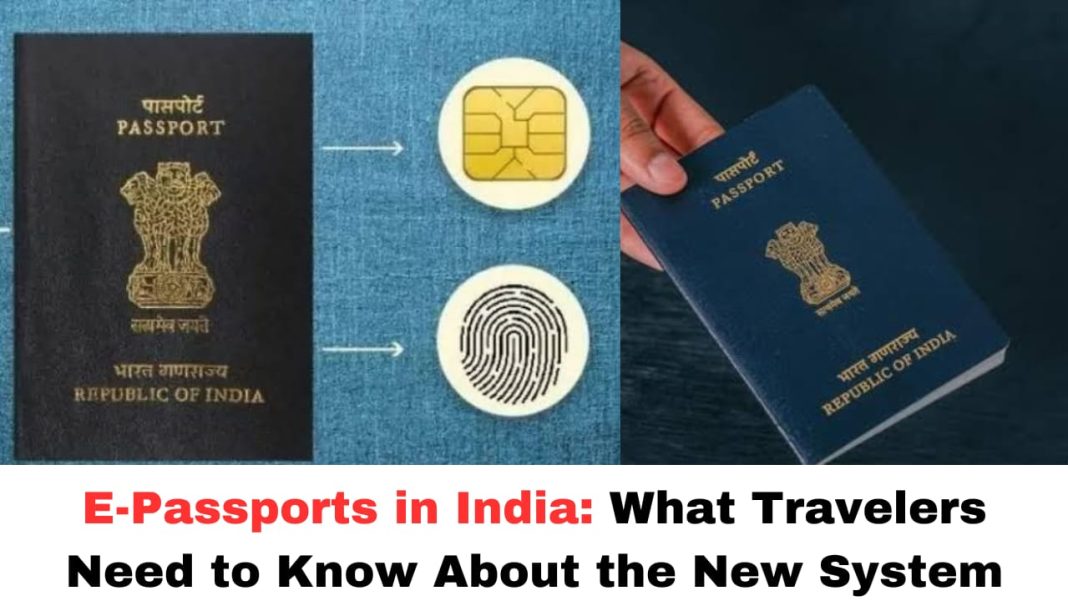Digital News Guru National Desk:
Introduction of Chip-Enabled E-Passport
India has officially launched chip-enabled biometric e-passports in 13 cities as part of the Passport Seva Programme 2.0, marking a significant advancement in travel document security and efficiency. The initial rollout includes Nagpur, Bhubaneswar, Jammu, Goa, Shimla, Raipur, Amritsar, Jaipur, Chennai, Hyderabad, Surat, Ranchi, and Delhi, with plans to expand nationwide by mid-2025.
What Is an E-Passport?
Each e-passport incorporates an embedded Radio Frequency Identification (RFID) … that store encrypted biometric and personal data, including the passport holder’s photograph, fingerprints, passport number.

The data is protected by global security standards like Basic Access Control (BAC), aiming to prevent identity fraud and enable faster immigration processing via automated e-gates in countries recognizing ICAO-compliant documents .
Key Features and Benefits
- Enhanced Security: The encrypted chip significantly reduces the risk of identity theft and passport fraud.
- Faster Immigration Processing: E-passports facilitate quicker border checks through automated e-gates in countries that recognize ICAO-compliant documents.
- Global Acceptance: India joins over 120 countries that have adopted e-passport technology, aligning with international travel standards.
Application Process
The process for obtaining an e-passport remains unchanged. Applicants can apply through the Passport Seva Portal. Once processed, the e-passport is delivered to the applicant’s registered address.

Manufacturing and National Initiative
The e-passports are produced at the India Security Press in … aligning with the “Make in India” initiative. This ensures that the technology remains under national control … supports the government’s push for domestic manufacturing.
Transition from Traditional Passports
Current travelers can continue using their traditional passports until expiry, after which they may upgrade to the e-passport version. This transition highlights India’s commitment to adopting cutting-edge technologies in public services.
Conclusion
The introduction of chip-enabled biometric e-passports in India marks a significant milestone in the nation’s journey towards modernizing its travel documentation and aligning with global standards. By embedding RFID chips that securely store personal and biometric data, these e-passports enhance security, reduce the risk of identity fraud, and streamline immigration processes for Indian travelers.
The phased rollout, beginning with 13 cities including Nagpur, Bhubaneswar, and Delhi, demonstrates the government’s commitment to leveraging technology for public service enhancement. Manufactured domestically at the India Security Press in Nashik, this initiative also aligns with the “Make in India” campaign, promoting self-reliance in critical infrastructure.

As the e-passport program expands nationwide by mid-2025, it is poised to significantly improve the international travel experience for Indian citizens, offering faster processing times and greater acceptance across borders. This advancement not only fortifies the integrity of Indian passports but also positions India alongside over 120 countries that have adopted similar technologies, reflecting a commitment to global best practices in travel security and efficiency.
You May Also Read: Virat Kohli Retires from Test Cricket After 14 Glorious Years, 123 Matches, 9,230 Runs, 30 Centuries








